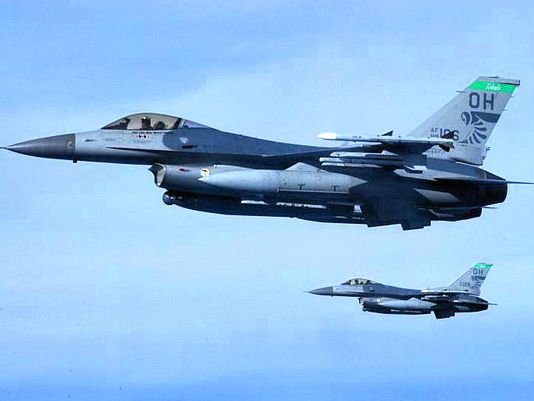Two days ago I read in the news:
Two U.S. fighter jets escorted a Canada-to-Panama flight back to Toronto after a passenger allegedly threatened the plane Friday morning. The nature of the threat or why the passenger was agitated were not specified. CBS News reported that the passenger told a flight attendant, "I have a bomb and I will blow up Canada."

What's the point of escorting the flight while it has been threatened by a passenger? How do they help to eliminate the threat?
